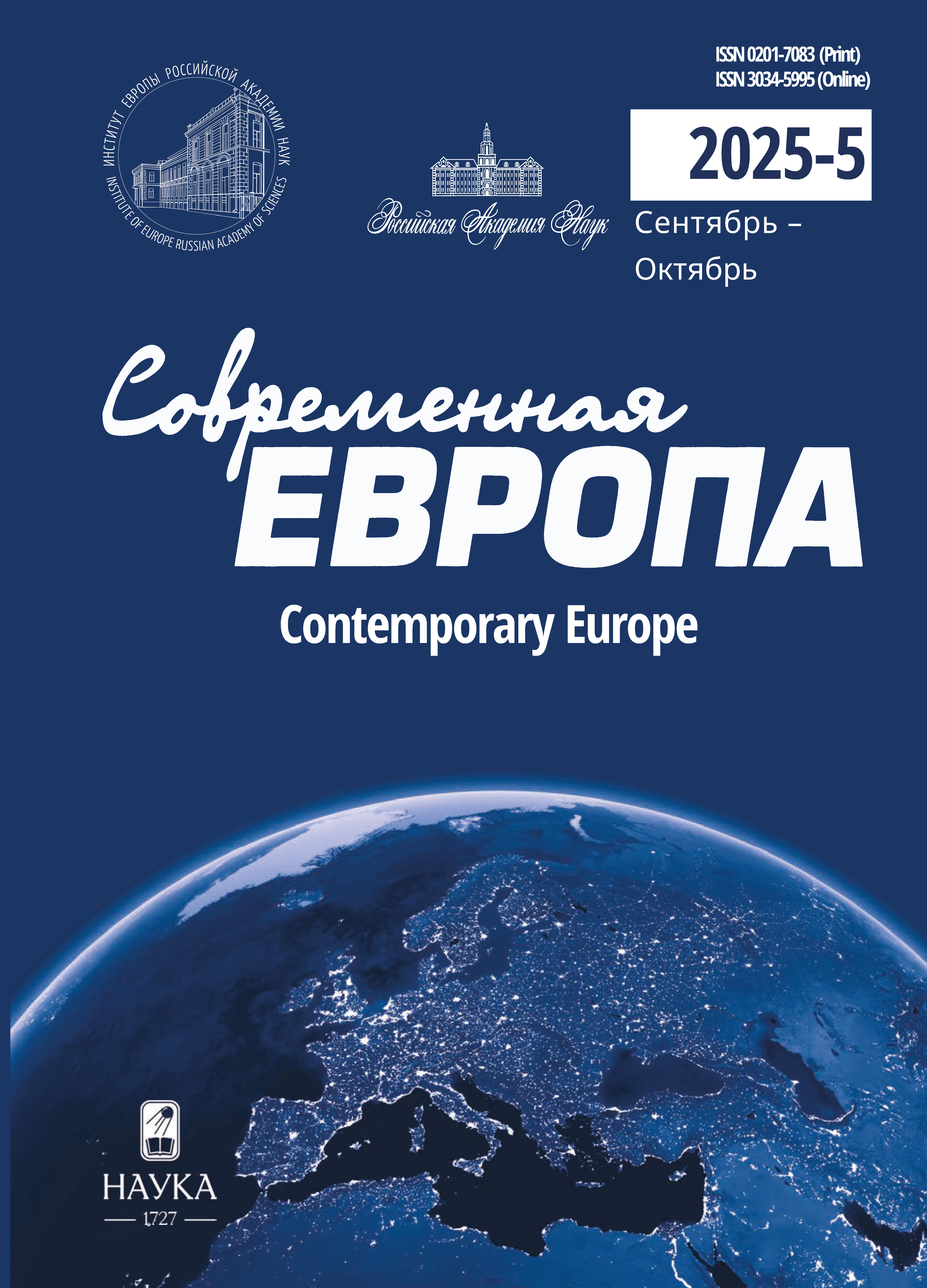Trade unions in Germany: challenges and solutions
- Authors: Rozhin A.A.1
-
Affiliations:
- Institute of Europe Russian Academy of Sciences
- Issue: No 6 (120) (2023)
- Pages: 154-166
- Section: Articles
- URL: https://rjsvd.com/0201-7083/article/view/652198
- DOI: https://doi.org/10.31857/S020170832306013X
- EDN: https://elibrary.ru/XXXAZW
- ID: 652198
Cite item
Abstract
German trade unions traditionally play critical role in securing fair work conditions and wages. However, in the XXI century they are facing significant challenges, caused by effects of globalization, structural changes in the labor market and others. The most prominent problem is gradually declining membership and therefore shrinking resource capacity. Necessity to attract new members encourages them to undertake many different actions: from increasing protest activity to altering their work models. Author considers the cases of German trade unions and how they react to the acute issues and their connection to the protests. Author draws a conclusion that structural transformations of the labor market have been more impactful than changes in their public perception. Worker unions have remained a significant and influential force in political and social fields. Nevertheless, format of their work requires significant modifications to strengthen them as organizations that truly represent workers interests.
Keywords
About the authors
Alexander Aleksandrovich Rozhin
Institute of Europe Russian Academy of Sciences
Email: iulanov1@gmail.com
Moscow, Russia
References
- Гришин О.Е., Канушкин А.В. (2023) Цифровая трансформация экономики как социально-политический вызов для немецких профсоюзов. PolitBook. № 2. С. 107-119. EDN: OIASVA.
- Избиенова Т. А. (2023) Коллективный (тарифный) договор в эпоху цифровизации в Германии. Вопросы трудового права. № 4. С. 240-245. doi: 10.33920/pol-2-2304-08. EDN: ODSBLV.
- Лобок (рук.) (2020) Модели профсоюзного движения: история и современность (зарубежный опыт). Санкт-Петербургский гуманитарный университет профсоюзов,Санкт-Петербург. 240 с.
- Шемякин Р. К., Избиенова Т.А. (2022) Неаффилированные забастовки в Германии. Вопросы трудового права. № 10. С. 660-663. doi: 10.33920/pol-2-2210-06. EDN: JSETVU.
- Шестакова Е. (2021) Социальная защита до и в эпоху пандемии: проблемы старые и новые. Обществоиэкономика. № 1. С. 81-99. doi: 10.31857/S020736760013403-2. EDN: VJKBBP.
- Cardoso A. (2018) Collective bargaining and extension in Brazil. Collective Agreements: Extending Labour Protection. Ed. by S. Hayter, J. Wisser.International Labour Organization, Geneva, Switzerland. P. 159-174.
- Furåker B., Larsson B. (2020) Trade Union Cooperation in Europe. Palgrave Pivot, Cham, Switzerland. 157 p. DOI: https://doi.org/10.1007/978-3-030-38770-9
- Gumbrell-McCormick R., Hyman R. (2013) Trade Unions in Western Europe: Hard Times, Hard Choices. Oxford University Press, Oxford, UK. 242 p.
- Heery E., Simms M., Simpson D., Delbridge R., Salmon J. (2000) Organizing unionism comes to the UK. Employee Relations. Vol. 22 No. 1. P. 38-57. doi: 10.1108/eum0000000005307
- Keller B. (2014) Gewerkschaften und Interessenverbände im System der Arbeitsbeziehungen des öffentlichen Dienstes. Handbuch Gewerkschaften in Deutschland. Ed. by W. Schroeder. Springer Fachmedien, Wiesbaden, Germany. P. 309-335.
- Lehndorff S., Dribbusch H., Schulten T. (ed.) (2017) European Trade Unions in a Time of Crises-An Overview. Rough Waters: European Trade Unions in a Time of Crises. ETUI, Brussels, Belgium. P. 7-38.
- Rüb S., Platzer H-W., Müller T. (2013) Transnational Company Bargaining and the Europeanization of Industrial Relations. Prospects for a Negotiated Order. Peter Lang, Oxford, UK. 316 p.
- Sabel C., Simon W. (2017) Democratic Experimentalism. Searching for contemporary legal thought. Ed. by J. Desautels-Stein, Ch. Tomlins. Cambridge University Press. P. 477-498. DOI: https://doi.org/10.1017/9781316584361.026
- Seeliger M. (2019) Trade Unions in the Course of European Integration: The Social Construction of Organized Interests. Routledge, London, UK. 288 p.
- Tricart J.P. (2019) Legislative Implementation of European Social Partner Agreements: Challenges and Debates. ETUI, Brussels, Belgium. 68 p.
- Vandaele K. (2012) Youth representatives' opinions on recruiting and representing young workers. European Journal of Industrial Relations. Vol. 18. Issue 3. P. 203-218.
Supplementary files











